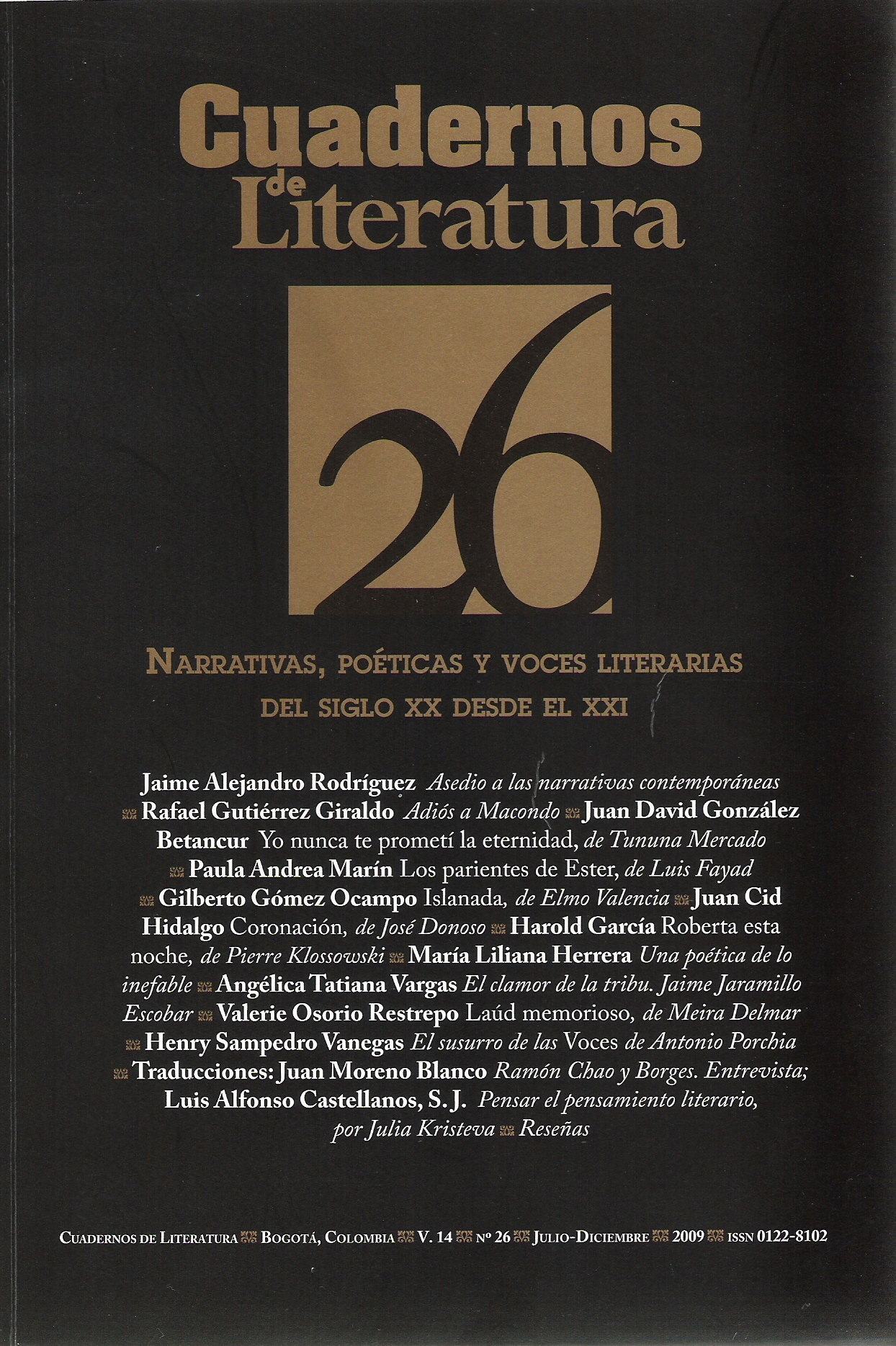Abstract
El carácter integrador y reconciliatorio de la poesía de Jaime Jaramillo Escobar se origina desde su principal función: hacer visible nuestra vida cotidiana y preservar la memoria colectiva con el fin de posibilitar la solidaridad moral y social. Su poesía propone un re-conocimiento de las voces de la comunidad y la heterogeneidad de nuestra cultura, a través del llevar a la declaración el sentir colectivo agraviado por la crisis de la modernidad. Este re-conocimiento se da gracias a la claridad de su lenguaje y a la visión crítica del contexto sociocultural. La poesía se convierte así en un discurso enardecedor que denuncia la mala conciencia de la infraestructura cultural y del yo histórico e individualista del mundo moderno. Al reconocer la importancia del lenguaje, en la fundación del ser del hombre y en la estructuración de las mentalidades, propende por la modificación de la sensibilidad social de su público a través de la inserción del lenguaje común en el lenguaje poético.
Cuadernos de Literatura is registered under a Creative Commons Attribution 4.0 International Public License. Thus, this work may be reproduced, distributed, and publicly shared in digital format, as long as the names of the authors and Pontificia Universidad Javeriana are acknowledged. Others are allowed to quote, adapt, transform, auto-archive, republish, and create based on this material, for any purpose (even commercial ones), provided the authorship is duly acknowledged, a link to the original work is provided, and it is specified if changes have been made. Pontificia Universidad Javeriana does not hold the rights of published works and the authors are solely responsible for the contents of their works; they keep the moral, intellectual, privacy, and publicity rights.
Approving the intervention of the work (review, copy-editing, translation, layout) and the following outreach, are granted through an use license and not through an assignment of rights. This means the journal and Pontificia Universidad Javeriana cannot be held responsible for any ethical malpractice by the authors. As a consequence of the protection granted by the use license, the journal is not required to publish recantations or modify information already published, unless the errata stems from the editorial management process. Publishing contents in this journal does not generate royalties for contributors.


